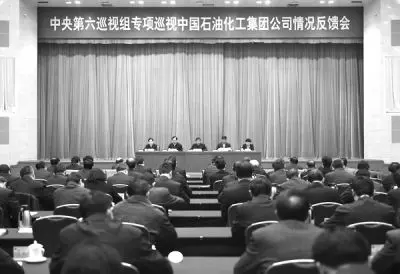On Friday, China vowed to fight the US "at any cost" after US President Donald Trump announced he has instructed the US Trade Representative (USTR) to consider imposing an additional $100 billion in tariffs on Chinese goods in an escalating trade dispute. On April 3, the USTR published a long list of imports from China that could soon receive 25 percent tariffs under Section 301, which could be regarded as the beginning of the trade war between the two biggest economies in the world.
Many were surprised by the US waging a trade war, the biggest since World War II, with China. The US may be the initiator, but it is also the most nervous. Wall Street is showing signs of worry as the Dow Jones industrial average plunged more than 572 points on Friday amid escalating economic tensions between the two countries.
Americans have reasons to worry. Those who backed Trump to be president, will surely face a harder life. Prices of Chinese-made goods will likely go up. Blue-collar workers will struggle to find jobs and some may even become unemployed. Farmers may face lower sales in their biggest foreign market.
The Trump administration sees the trade war as part of an overall policy, a policy of "isolationism." Trump's foreign policy, if there is one at all, is solely made to serve his domestic agenda. The trade war with China is a slogan, which shows his consistent attitude of "America first" and his progress on commitments to boost the economy. He needs to secure votes for his mid-term election and re-election.
Moreover, Trump sees the trade war as a strategic play, which will hopefully deter China's development in the long run, and "make the US great again," just like it did with Japan in the 1980s. The Japanese economy was defeated, became sluggish and faced "the lost decade" in the 1990s, while the US regained its market and competitiveness through that trade war. Today, the US worries about the Chinese corporations due to their improved innovation and enhanced competitiveness. Trump wants to keep economic gap between China and US, so he is trying to pull the same stunt as Ronald Reagan did.
Trump was and still is a businessman. His personal experience has taught him to be unpredictable and short-sighted. In past business negotiations, he made excessive profits through his unique negotiation style. After being elected as president, he continues to create tension with his opponents, take advantage of loopholes in the system, and force his opponents to compromise as before. This time, he is trying to coerce China to open its market further in the areas of finance, agriculture and service industry, through initiating the biggest trade war in the recent half-century.
Trump's personality has made the situation more complex. We all know that trade surplus is the result of many influencing factors, one can never reverse it simply by taking tough foreign policies. Politicians know this and deal with it in a step-by-step manner. They also understand that the US has great advantages in financial fields, as the US dollar is the universal currency. Although there is huge governmental debt both domestically and internationally, Americans can maintain their current lifestyle simply by inflating the currency.
In November, China signed $250 billion worth of deals with the US covering a wide range of industries during Trumps visit to China. Just three months later, the US escalated economic tensions and initiated a trade war with China.
History will not repeat itself. China did not sign another "Plaza Accord" with the US. Instead, it announced plans to tax $50 billion in American imports, including soybeans and small aircraft, and vowed to fight back "at any cost."
At a press conference, Chinese Commerce Ministry spokesperson Gao Feng reaffirmed the position that China doesn't want a trade war, but isn't afraid to fight one, adding that if the US announces tariffs on a list of products worth $100 billion, China is fully prepared and will without hesitation counterattack with great strength.
(GLOBAL TIMES)
 简体中文
简体中文

